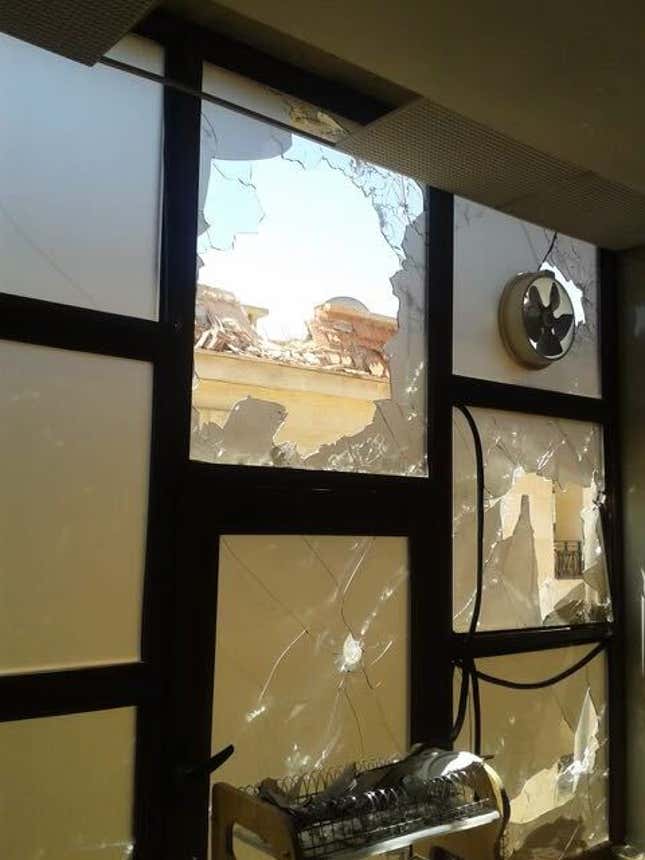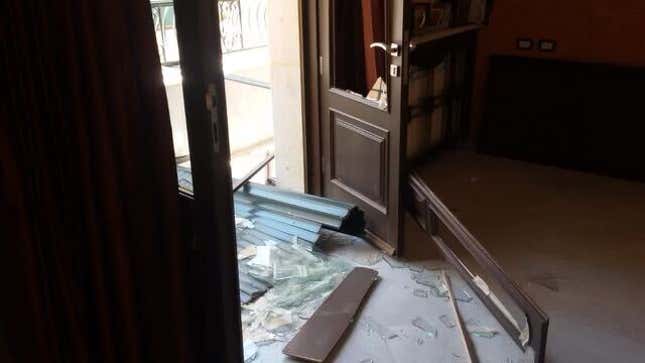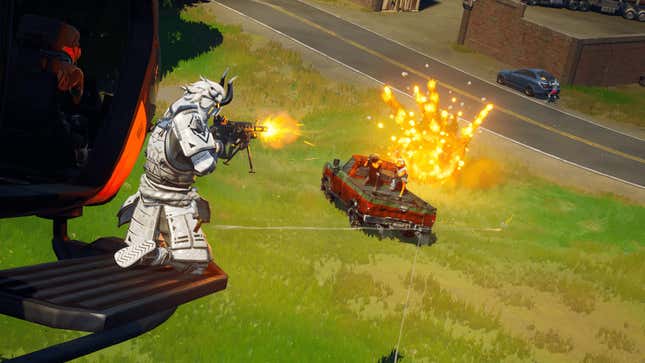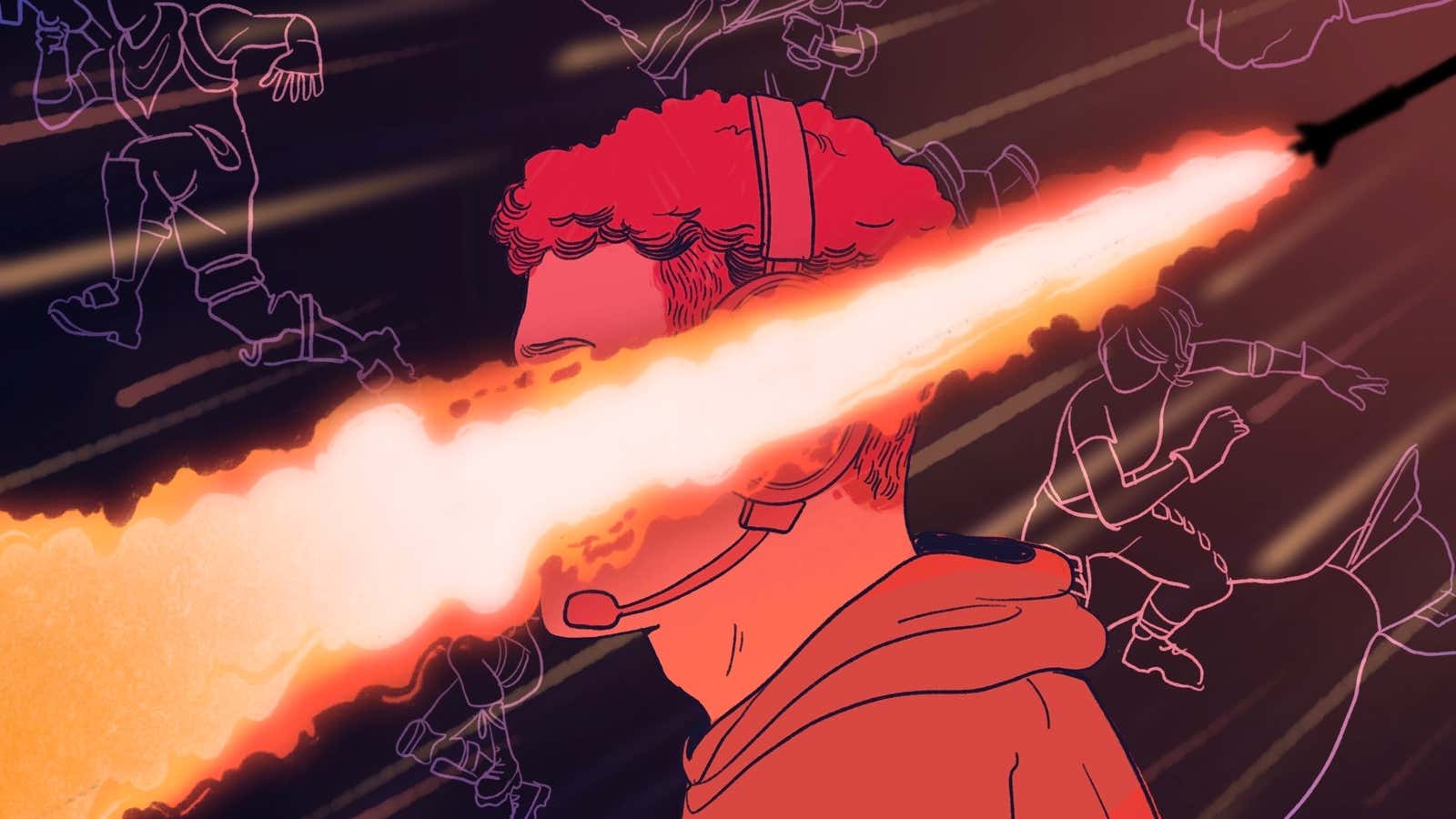It isn’t always easy turning tragedy into triumph, but Mounir “33 Mony” Mkhallati is no stranger to that odyssey. Once a child during a tumultuous time in Syria, 33 Mony has gone on to earn some $60,000 since competing in the pro Fortnite gaming circuit and joining esports organization Team 33.
But to understand 33 Mony’s present, we’ve got to dig through his past to see where he came from. In a Kotaku interview, he divulged it all, including some harrowing accounts of the death and destruction surrounding him.
Originally from Syria, 33 Mony lived in the war-torn country for 12 years before moving to Turkey. Syrian life was pretty peaceful, with 33 Mony playing Clash of Clans and perusing Facebook like any perennially online child does, but things eventually took a sharp turn for the worst. The country erupted into a civil war in March 2011 (that’s been going on for a whole decade now), as citizens protested the Syrian government and continue to call for current president Bashar Hafez al-Assad’s resignation.
And as a pre-teen, 33 Mony experienced things like “bombs [landing] on electricity plants” and “water [coming] only once a week” in the city of Aleppo where he lived for a time. There was also no fuel for the winters and a distinct isolation from the world due to having no internet connection.
But 33 Mony’s apartment was traditional in the way most tend to be. There was a boys’ room with two beds, where he slumbered below a ceiling painted to look like “you’re staring at the sky,” he said. It had a guest room and a kitchen with porcelain floors, but also light blue colors and little birds everywhere. A “normal house,” as he put it, but full of the scent of garlicky spice of chicken shawarma, a favorite dish his parents made back in Syria.
Then, around three years later, everything changed.
“I still remember,” 33 Mony said, recalling a dire morning back in 2014. The surrounding area was getting bombed, rendering his third-story apartment partially destroyed. A single hallway became the only safe spot for protection: A war was unfolding around him. There was glass everywhere, alongside downed doors and missing walls. None of it was nearly as bad as the top floor, which saw the brunt of the damage.
“There were two people living there [that got] injured, but luckily for them, they survived.”
And then, the day had to keep going.
“My parents made us go to school, even though there was a battle going on two miles away from us and we could hear all the guns,” he said. “So we were just waiting for the bus, and then we hear [mimics explosion sounds].”

When that sort of thing becomes a nearly daily occurrence, you have no choice but to find ways to live with the horrifying conditions. Not an easy or simple thing to ask of anyone, much less a child.
“For a year or two, there had also been a sniper that would snipe on the street because it was a very long street,” 33 Mony recounted during our interview. “[The sniper] would try to shoot at people crossing from one side of the road to the other. So what we would do is run, and if you’re running, the guy sitting five miles away wouldn’t be able to hit you.
“One day, my friend was like ‘I’m sick of this, I’m done,’ and he just started walking. For a whole week, the sniper wasn’t shooting at him and he was like ‘Look, he’s not shooting at me. He’s not going to shoot me.’ And then one day, he was walking and [the sniper] decided to shoot him and [my friend] got hit in the neck.
“They took him to the hospital, [where] they gave his parents a choice: either [he was going to] die or he would live his whole life fully paralyzed. He wouldn’t be able to be in control of anything. They talked to him and they ended up just letting him rest in peace.”

This, alongside the explosion atop his house, rattled the entire complex and shook 33 Mony to his core. As things went down, he ran to check on his parents, who were asleep at the time, to make sure they were OK. But all he felt was fear.
“I just kept thinking that I wanted to leave the house,” 33 Mony said soberly in a phone interview with Kotaku. “It was really dangerous over there.”
Leaving, of course, wasn’t simple. Getting things like money, or the proper Visa documentation, was a seven-year process. 33 Mony managed to leave the cacophony of guns and explosions around 2015, after taking a bus to Lebanon from Syria. His destination was Turkey, but he couldn’t go there directly, as there was the danger of encountering terrorist groups on the ground. After hopping on a plane from Lebanon, 33 Mony finally arrived in Turkey.
“I didn’t have internet back in Syria,” 33 Mony said.
Turkey was an improvement for these basic necessities, but more than that, it was a source of inspiration. Being connected to the internet meant having a pipeline to envision different possibilities.
“In Turkey I had internet, but I didn’t have a computer so I would watch people play Minecraft, and esports was something that interested me. I was like, ‘If I can compete with other people online this could be fun.’ And I saw a little bit of a future in it.”
While Turkey was a welcome reprieve from a chaotic life, he wasn’t there long. His family used Turkey as an in-between before getting to the United States when he was about 14 years old. While he arrived in 2016, it would take a year to save up enough money for the right gaming tools. Eventually, he upgraded from a laptop to a full-fledged gaming PC. The hardware was shared with his brother, and the two began taking turns playing Minecraft.
By June 2020, Fortnite’s battle royale mode dropped. 33 Mony instantly took to the game, falling in love with its building mechanics and gameplay design.
At first, he wasn’t all that good. But he got to work, sometimes putting in 12 hour days just training his aim. Other times, he’d load up some videos of other talented players to study their building techniques and weapons of choice.
Once a fast Fortniter, building and moving as quickly as possible, 33 Mony has learned to be more strategic with his play. That shift in approach prompted him to sign up for the 2019 Fortnite World Cup. Though he was two points short of qualifying for the main event, this was when he started winning actual cash from Fortnite competitions around the world. Mony would see $100 here, $200 there. He would even get up at 2am in the morning just to compete in tournaments located in Asia that weren’t region-locked. After playing all morning, he made nearly $1000 in just one day alone.
“I remember I couldn’t sleep because of how excited I was,” 33 Mony said.
But what solidified esports as a viable career for 33 Mony was killing pro Fortnite player Tyler “Ninja” Blevins after matching with him a year earlier. Being able to brag on social media made a huge difference, as it helped get his name out there.
“I posted the video on YouTube and it got 5000 views,” 33 Mony said. “I’ve been uploading a lot of videos before that and they would get [maybe] 50 views [or] something like that. So when I killed Ninja, I got 5000 [views] and was like ‘What the heck? I could be famous off this.’ So I just kept grinding.”

Another key element of 33 Mony’s ascent was his peers and fellow Fortnite pros. He would play with Kyle “Bugha” Giersdorf, now famous for winning the first Fortnite World Cup, and Nate “Kreo” Kou, another high-level competitor. Years later, between some arguments and atrocious ping, the three aren’t as close anymore—but Mony definitely grew from the experience.
It’s possible you haven’t seen Team 33's Fortnite crew do anything yet, though. (The gang’s biggest headline was signing an eight-year-old to play Fortnite.) That’s because, according to 33 Mony, everyone is new. In fact, they were assembled this year, with people still getting added to the roster.Life is different now, thanks to Fortnite. Living out of the states in 2021, 33 Mony can focus more on games and school without fear of getting bombed or sniped. Mony can now say he feels “more comfortable and safer” these days. He was also free to focus on his training regimen, ultimately becoming a consistent top 15 player in Fortnite’s North American West division. That’s what caught the eye of Team 33’s CEO Tyler Gallagher, who upon hearing his story, recruited 33 Mony just this past August.
He now plays about four hours a day “to stay in the meta and evolve” with the game. He’s also going to school full-time, studying engineering at a community college with the hopes of transferring to Cal Poly Pomona or UC Riverside. And then there’s the end goal: merging his engineering background and love of Fortnite‘s building mechanics and putting that into machine creation or motorsports. In the end, he just wants to build stuff and live his best life.
“I’m just trying to stream,” 33 Mony said. “I’ve been studying stocks because I invest my money. I’ve been socializing more, going to car events, stuff like that. But once the season starts, that’s when the grind starts again.”
